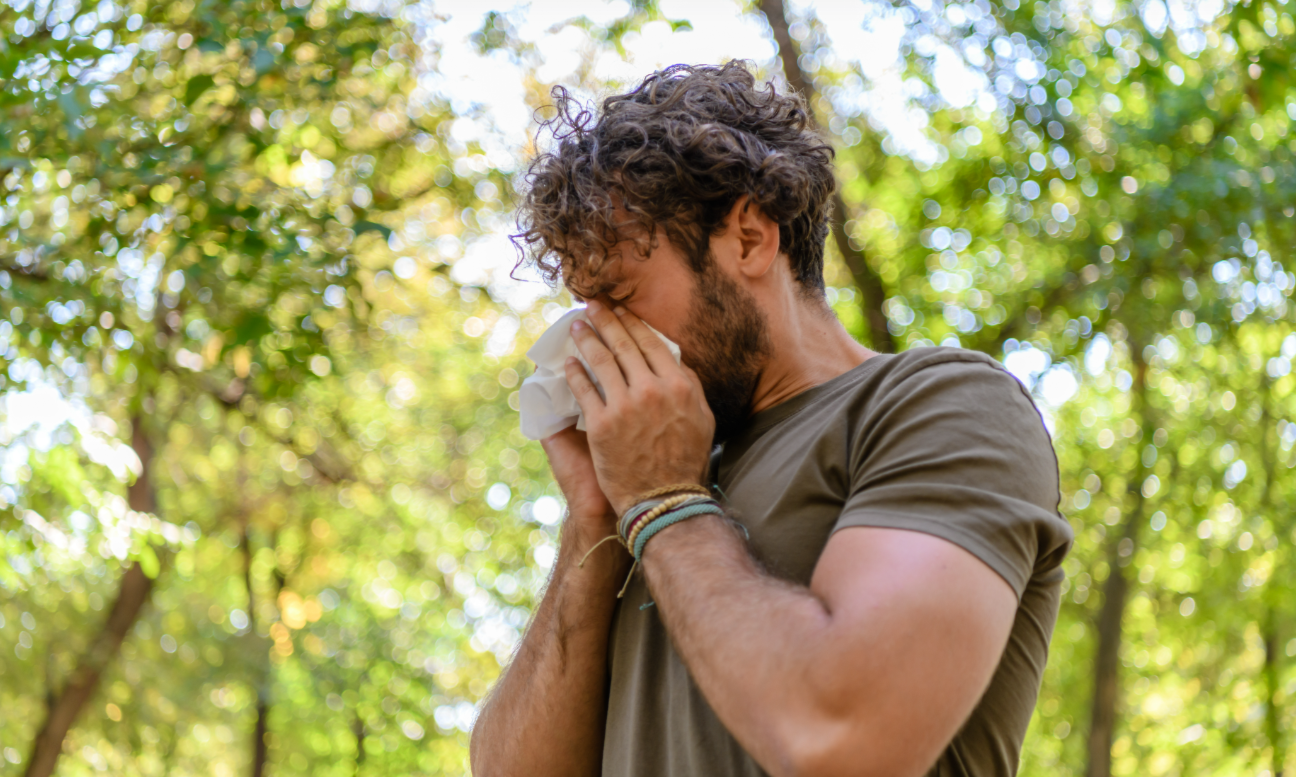Surviving Spring Allergies
Untreated allergy symptoms often get worse. If you’re having symptoms at the onset of spring, it’s better to come see us earlier than later in the growing season. After a winter of wild weather and drought-busting storms, Southern California is likely to see a super-bloom of gorgeous wildflowers along with an explosion of pollen from grasses, weeds and blossoming trees that aggravate allergy sufferers.
Doctors are already starting to see patients that are experiencing severe symptoms.
Symptoms
These pollen producers send billions of tiny spores into the air. When inhaled, they can overwhelm the immune system, triggering nasal allergy symptoms, including:
- Sneezing
- Nasal congestion
- Runny nose
- Itchy, red, or watery eyes
Seasonal allergic rhinitis afflicts more than 81 million Americans each year, according to the Asthma and Allergy Foundation of America. Some estimates put the cost of treatment, doctor’s visits, and lost productivity at more than $18 billion each year.
Is It a Cold or Allergies?
Many people confuse an allergic reaction with a cold.
A cold may cause persistent sneezing, an itchy nose, congestion, or postnasal drip. It usually comes with additional symptoms such as fever, chills and sore throat that doesn’t last much more than a week
Allergies, however, are persistent, lasting for weeks or even months.
Avoid Pollens
Think you are having an allergic reaction? If so, it’s best to avoid the pollens that may be the cause. These tips can help:
- Check the weather and other apps for projected pollen counts and stay inside when pollen levels are high.
- Close the doors and windows to keep the pollen out. If it’s hot, turn on the air conditioning to filter the air and keep cool.
- Shower and wear clean clothes. If you need to go outside, shower as soon as possible after coming inside or at least change and launder your clothes.
- Clean household surfaces weekly and regularly wash bed sheets in hot water to reduce allergens indoors.
Because we know that certain pollen counts rise during the morning hours and peak at midday, we recommend changing your outdoor routines. Exercise before dawn or in the evening.
Treating Allergy Symptoms
Over the counter remedies, such as non-sedating antihistamines or nasal steroid sprays, may provide relief in milder cases, but people with additional health issues should check with their doctor first before using them
For instance, antihistamine doses may need to be adjusted for people with liver or kidney problems. Nasal steroid sprays are effective but, in some instances, may increase eye pressure. Decongestants may reduce stuffiness but they also can raise blood pressure and heart rate. If your nasal allergy symptoms are severe or do not respond to common treatments, see your doctor, who may recommend a prescription nasal spray, or a medication called a leukotriene inhibitor to block formation of leukotrienes — the chemicals your body releases to attack the allergen — which cause allergy symptoms.
Allergy Testing
People suffering from moderate to severe seasonal allergies may want to consider allergy testing.
When patients tell us they’re getting better it’s time for allergy testing to identify the exact cause of the allergic reactions. We also advise you on how to avoid the offending pollens, along with any contributing indoor allergens, such as animal dander and house dust mites.
Blood tests can identify potential allergens in your system with 70%- 75% accuracy. We prefer a skin test, which allows us to check for reactions to as many as 80 types of allergens with more than 90% accuracy.
The most common pollen allergies are to grasses and much of Southern California, where the growing season is nearly year-round. Next are trees — especially olive, oak, California juniper and maple — followed by weeds and mold spores.
Allergy Shots
If medications and avoiding these allergen producers don’t help, injections are an option. Allergy shots can desensitize the body to the offending substances and may offer a 50% to 70% reduction in symptoms.
Treatment usually starts with a regimen of injections once or twice a week for several months, with each shot containing a larger dose of the allergen(s) to build a tolerance. Maintenance injections are then given once a month and usually continue for up to 5 years.
“Allergy immunotherapy — or allergy shots — are highly effective in carefully selected patients. Studies have found that in 85% of patients, the savings from over-the-counter medications and prescriptions, fewer symptoms and complications, regained productivity and improved quality of life far outweigh the costs of the shots.
Don’t Delay Treatment
Untreated allergic reactions often get worse.
In a phenomenon known as allergen priming, it can take ever smaller amounts of exposure to an allergen to trigger a reaction. It also may increase susceptibility to other allergens.
If you’re having symptoms at the onset of spring, it’s better to come see us earlier than later in the growing season.


